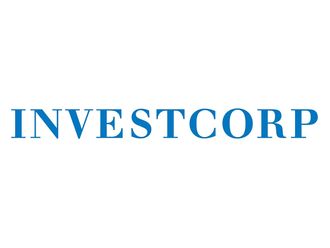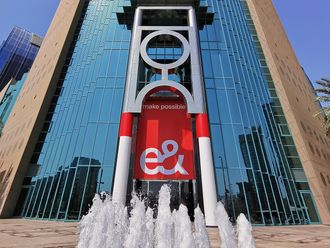Dubai: For Robin Farrell, CEO at Arch Fund Management Group, London, "Just because structured credit is down the tubes doesn't mean every so-called 'off-market' investment should be tarred with the same brush".
Says the voice of a man whose principal five funds are currently ranked either number one or two in the UK IMA rankings year-to-date. Of course, if you are top because your peer group is in the dumps, doesn't always bring kudos. Where is the glory in being the best of a bad bunch? However, the Arch Fund family performance sits well at any performance table.
The Arch Family tick all the following boxes: absolute return focused; risk controlled; discretionarily managed; yet, according to Farrell "we are not a hedge fund". Whilst Farrell would list a number of differentiators between his fund and the rest of the fund universe, the two stand-out, "that's different", features relate firstly, to Arch's focus on Private non-market listed companies in which to invest either by way of lending (debt) or by way of direct equity investment. Secondly, to the fact that they take the view that a good investment must be able to make money at the entry point, and (after the investment is made), be harvested for a period of time.
According to Farrell "this makes our style long-only. Investing in the private markets means we don't have to experience unnecessary volatility - there is a much higher correlation between success of the investments and the returns we earn for investors".
Intrigued, I asked how can you make money with certainty on an immediate basis and follow that up with a rich harvest? The response: "it's like developing the worst house in the best street" says Farrell. Ah-ha! If you know that all the units are worth the same, (if they looked the same), why not buy the cheapest one; add-in what the previous owner didn't have (liquidity to upgrade) and hey-presto your capital value is up. Of course, if it is in the best street (and now you have one of the best houses), then you can also rent the house out. Once it is upgraded the yield will also return to the investor. A quick capital gain and a harvest.
Trick
The "trick" for Farrell includes two important ingredients. Firstly, the investment must be a good company in the first place. A dud is a dud, and adding money to duds will not produce profit. Adding liquidity in order to fulfil potential in an otherwise illiquid company, asset or project, is the skill-set. This requires superb risk assessment and superb structured finance skills. For Farrell, skills honed as a consultant at Goldman Sachs and as "Global Head of Alternatives" at Dresdner.
So how good is the performance? The Arch family has four components: Private Finance, Private Equity, Sustainable Opportunities and Real Assets. The Private Finance component of 7 funds represent monies loaned for a high rate of return, usually in the 6 to 7 per cent over LIBOR "ball park". A rate which will not attract the corporate "household names"; and, a rate which - if applied by a High Street Bank - would suggest extreme risk. Given the credit crunch, and its risk-adverse High Street consequences, this is now a rate which many small-to-medium sized companies would be prepared to pay in return for the life-blood of immediate liquidity.
For Arch, and Arch investors the resulting returns are targeting and hitting around 11 to 15 per cent per annum with a volatility score of less than 2 per cent. With an aggressive "structured finance" strategy designed to provide security at over 120 per cent, the returns have been both stunning and secured. A rare treat.
The more aggressive strategies of Private Equity (8 funds) target performance returns of 20 per cent per annum with volatility at around 4 to 8 per cent. The Sustainable Opportunities Funds invest in renewable resources such as water and carbon. There are three funds targeting returns at 20 to 30 per cent with a volatility of 5 to 7 per cent. Finally, the "Real" Asset Funds (5 funds) invest in assets such as forests, farmland and ships. The fund owns stakes in tangible physical assets targeting a 10 to 25 per cent return per annum based on the underlying asset with a volatility score of 4 to 10 per cent.
Competition
If the funds are doing so well, where does Farrell see the competition? "We tend to find that our competitors are the Investment Banks, although our deals (of up to $40 million) tend to be below the Investment Bank radar" says Farrell, " in addition the Investment Banks tend to lend on a per project basis whereas our funds are managed on a portfolio basis" in order to underline the unique market positioning.
To quote the adage "the cheques keep coming as long as the performance is there". At present Farrell and the Arch philosophy are making performance waves, not by replicating the volatility and uncertainty of markets but by providing a risk-managed consistency with a steady upside "we don't aim to shoot the lights out" says Farrell. Although, as an "absolute return focused" fund there is responsibility: "absolute means making money every year" says Farrell.
The performance-watchers may look sub-consciously at Arch and apply the hedge label to the offering, "but in reality our biggest advantage is that we deal in privately negotiated assets and companies" says Farrell-which hedge funds rarely do. A quick glance at today's markets reflects the angst of the publicly-listed security: the company might be doing well, but if the public sentiment is against the stock or the market, or both, the result is a price downgrade.
"Our prices are not prone to illogical price movements meaning that our underlying assets are less volatile" says Farrell, "The bottomline: We don't pay the price of market sentiment".
- The writer is chairman of Mondial Financial Partners.












